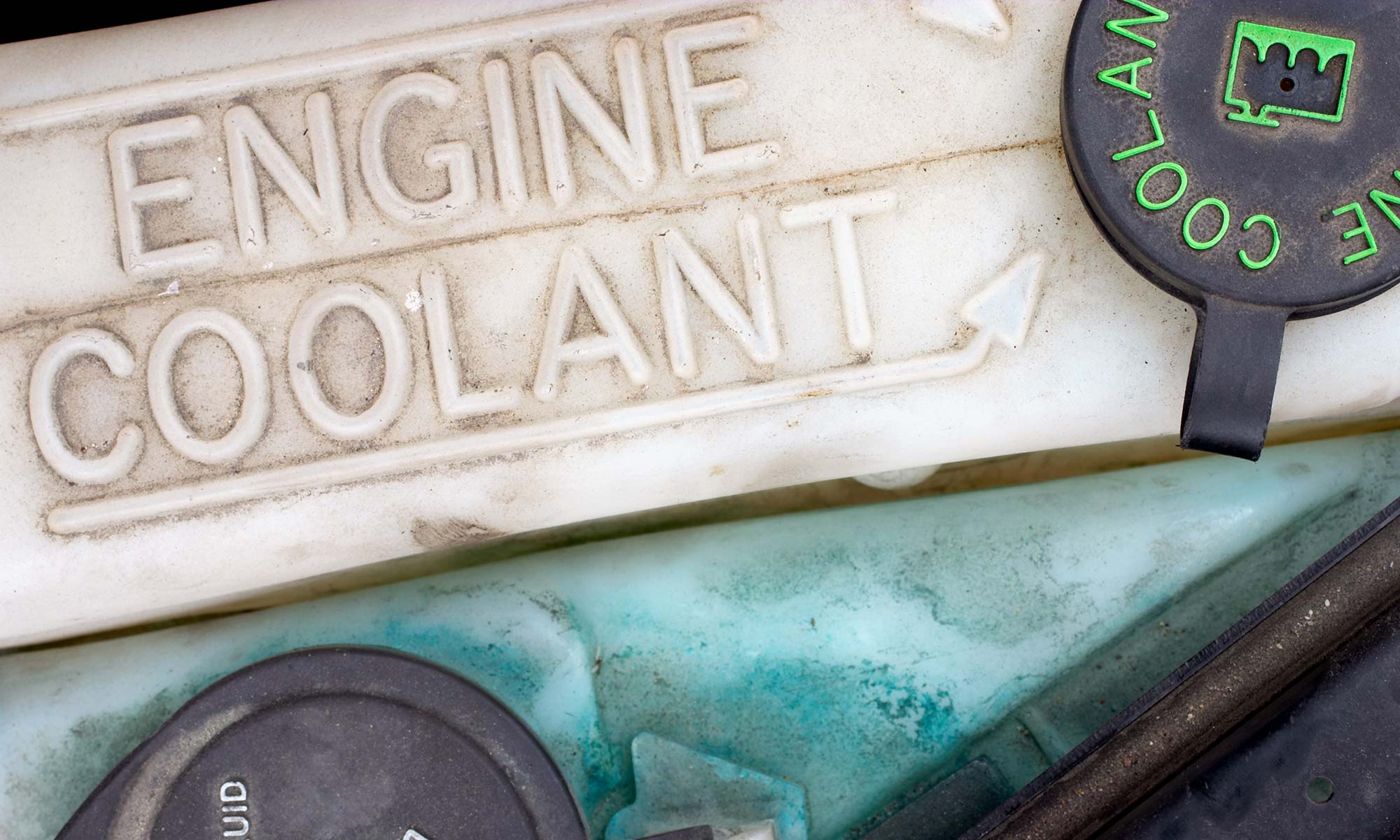¿Cuál es la diferencia entre refrigerante y freón?

Puede suponer que el refrigerante de su automóvil y el freón (a veces llamado refrigerante) son el mismo tipo de sustancia química y cumplen la misma función. Sin embargo, si bien ambos son indudablemente cruciales para el estado de un vehículo, estos dos líquidos cumplen funciones diferentes y no son intercambiables.
En Endurance, sabemos lo importante que es mantener su vehículo en buen estado. programa de mantenimiento regularSi no lo hace, puede afectar el funcionamiento de su automóvil e incluso su vida útil. El mantenimiento poco frecuente también puede, en ocasiones, anular la garantía del fabricante, la garantía extendida o el plan de protección del automóvil.
Para ayudarlo a comprender mejor estas diferencias clave y explicar por qué es crucial verificar estos fluidos con frecuencia, veamos con más detalle qué son exactamente el refrigerante y el freón y cómo ayudan a que su vehículo funcione correctamente.
¿Qué es el refrigerante?
Muchos vehículos tienen un motor de combustión, que utiliza pequeñas explosiones controladas para impulsar el vehículo. Si no se controlan estas explosiones, se puede correr el riesgo de sufrir daños. calentamiento excesivo tu motor, por eso refrigerante Fue diseñado.
Además de esta función principal, el refrigerante también ayuda a lubricar los distintos componentes de su vehículo, lo que ayuda a protegerlo contra posibles daños.
El propósito del refrigerante
El sistema de refrigeración El sistema que mantiene frío el motor de su vehículo es complejo y funciona constantemente mientras usted conduce. Mientras el motor está encendido, la bomba de agua de su vehículo alimenta el sistema de refrigeración y mueve continuamente el refrigerante desde el motor hasta el radiador.
A medida que viaja por el motor, el refrigerante absorbe el calor emitido antes de llegar al radiador. Allí, el refrigerante se enfría gracias al aire exterior que entra por la rejilla del radiador del vehículo mientras conduce. A partir de este punto, el refrigerante vuelve a su estado inicial y continuará este ciclo mientras el motor del vehículo esté en marcha.
Para protegerse del sobrecalentamiento, el motor tiene un termostato interno ubicado debajo del capó del vehículo que controla la temperatura del líquido refrigerante. Si la temperatura alcanza un umbral determinado, el termostato dirigirá el refrigerante de regreso al motor para absorber más calor antes de regresar al radiador para enfriarse.
Si bien se utiliza principalmente para evitar el sobrecalentamiento, el líquido refrigerante también contiene anticongelante, lo que protege el motor contra la congelación y proporciona una barrera contra el óxido y otros posibles contaminantes. Sin embargo, como ocurre con la mayoría de los líquidos dentro de su vehículo, es probable que deba reemplazar el refrigerante. Si no está seguro de cuándo debe reemplazar el refrigerante dentro de su vehículo, consulte el manual del propietario. También puede visitar su taller de reparación local, ya que muchos mecánicos lo comprobarán si lleva su vehículo a reparar. control de hitos.
También es importante saber que la mayoría de los motores de combustión modernos utilizan este tipo de sistema de refrigeración. Esto se debe a que los vehículos más antiguos utilizaban un sistema de refrigeración por aire, por lo que si su vehículo es de una marca o modelo anterior, consulte el manual del propietario o consulte a un mecánico certificado antes de intentar cualquier reparación. Mantenimiento por cuenta propia a su sistema de refrigeración.
¿Qué es el freón?
Mientras que el refrigerante enfría el motor, el freón es el componente principal que se utiliza para mantenerlo fresco a usted y a los demás pasajeros con el sistema de aire acondicionado de su vehículo. Originalmente llamado freón R-12, se descubrió que esta forma de la sustancia química causaba daños a la capa de ozono, lo que provocó que la Agencia de Protección Ambiental lo prohibiera en 1994. Desde entonces, los vehículos han utilizado el más común R-134a Freón.
El propósito del freón
Dentro de su sistema de aire acondicionado hay un componente conocido como Aire acondicionado o compresor A/C. Este equipo comprime el gas freón hasta convertirlo en líquido antes de pasarlo a un condensador. Allí, el freón caliente queda expuesto al aire exterior que entra por la rejilla del vehículo, enfriándolo antes de convertirse en gas.
En esta etapa, el freón recién formado absorbe el calor dentro del sistema de aire acondicionado, lo que garantiza que solo quede aire frío. Los resultados de este proceso se pueden ver cuando activa el aire acondicionado, ya que este aire recién enfriado es el que se envía de regreso a la cabina a través del sistema HVAC de su vehículo.
Si comienza a notar algún problema con su aire acondicionado, como por ejemplo si de repente sopla aire caliente, es posible que necesite rellenar su freón.
Diferencias clave entre el refrigerante y el freón
Si bien el refrigerante y el freón pueden cumplir funciones similares en el sentido de que ambos ayudan a evitar el sobrecalentamiento, funcionan en diferentes áreas del vehículo y, por lo tanto, no son intercambiables. En cambio, el refrigerante está diseñado para Mantenga el motor frío y permanecerá en estado líquido dentro de su sistema. Por otro lado, el freón es un gas que se convierte en líquido y luego vuelve a convertirse en gas antes de crear el aire frío que se siente en la cabina cuando el aire acondicionado del automóvil está encendido.
Reemplazar el refrigerante de su vehículo no hará que salga aire frío del sistema de aire acondicionado. Asimismo, reemplazar el freón no ayudará a enfriar el motor ni otras piezas debajo del capó.
Para un rápido resumen, a continuación se presentan solo algunas de las diferencias clave:
- El freón elimina el calor del habitáculo de un automóvil, mientras que el refrigerante elimina el calor del motor.
- El freón cambia entre estado gaseoso y líquido, mientras que el refrigerante permanece líquido durante todo su proceso.
- El refrigerante no afectará la temperatura del aire acondicionado
- El freón no enfriará su motor
- El refrigerante contiene anticongelante, a diferencia del freón.
Además de estas diferencias, ambos componentes deben reemplazarse en intervalos diferentes, según el fabricante de su vehículo. Seguir el manual del propietario es la mejor manera de asegurarse de mantener un programa de mantenimiento adecuado para su vehículo.
Ahorre dinero en reparaciones y mantenimiento de automóviles
El mantenimiento y la conservación regulares de líquidos como el refrigerante y el freón pueden ayudar a prolongar la vida útil de su automóvil y reducir al mínimo las reparaciones o el mantenimiento inesperados. Una vez que haya expirado la garantía de fábrica de su vehículo, un plan de protección del vehículo Podría ayudarle a ahorrar miles de dólares y tener más tranquilidad en la carretera.
La protección contra averías Endurance podría ser justo lo que necesita con una variedad de opciones de cobertura y planes personalizables. Ya sea que esté buscando una protección de nivel inferior o una cobertura casi total, existe un plan que se adapta a sus necesidades y a su presupuesto. Contáctenos en línea para recibir una cotización gratuita y sin compromiso. o llame al 1-866-918-1438.













Desde que abrió su taller de reparación certificado por ASE en 1979, Reparaciones automotrices AyersNikki ha dedicado gran parte de su vida profesional a brindar servicios de reparación de automóviles confiables y de confianza en su comunidad local. Su equipo de técnicos certificados ha ayudado a miles de propietarios de automóviles durante más de 40 años ofreciendo diversos servicios, desde reparaciones generales hasta vehículos averiados.